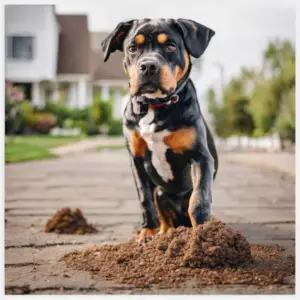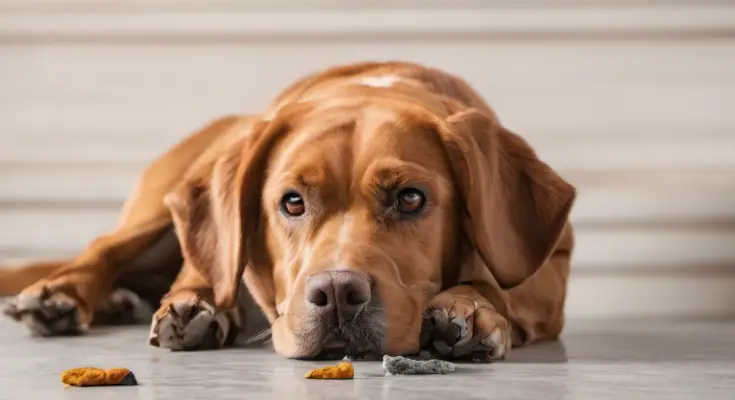7 Month old puppy still not house trained So your puppy is seven months vintage and you’re nonetheless finding little surprises across the house. Don’t get too frustrated but – residence education takes time for a few pups, but the secret is being patient and consistent along with your schooling. Stick with it and your dog gets there. This manual will stroll you through some tried and proper strategies to get your doggy house educated, even if he appears to be a gradual learner. We’ll speak about how to set up a schedule, rewards to motivate your dog, and hints like crate education. With the right method, your puppy can examine this key ability and keep your flooring. But it does take time and practice, so grasp in there and reinforce the proper behaviors. Now allow’s get started on getting your 7 month vintage fully residence trained.
Understanding House Training for Puppies
House schooling a doggy takes time, patience, and consistency. At 7 months, your puppy remains studying appropriate bathroom behaviors and to count on you for guidance. Don’t get frustrated if accidents still happen—stay positive and focused on setting your pup up for success.
Establish a routine
Establishing a regular feeding, watering, and restroom damage schedule is prime. Take your domestic dogs out frequently, mainly when they devour, drink, or wake up. An excellent rule of thumb is as soon as every 1-2 hours. Also, closely supervise your puppy indoors and take them out if they start sniffing, circling, or scratching at the door. Provide plenty of advantageous reinforcement like treats, praise, or play whilst your puppy goes to the restroom outdoors.
Confine when you can’t supervise
When you can’t actively watch your pup, confine them to a crate, playpen, or puppy-proofed room. This prevents accidents around the house and teaches them to hold it until taken outside. Start with short periods, like 30 minutes, and gradually increase the time. Be sure to take your pup out right away when you return.
Clean up accidents thoroughly
If an accident happens, clean it up promptly using an enzymatic cleaner to remove the smell. Don’t punish your puppy, just take them out immediately after cleaning up. The smell of previous accidents can trigger another accident in the same area.
Be patient through setbacks
House schooling a domestic dog takes four months of diligent training. Accidents and setbacks happen every day, so try not to get discouraged easily. Go lower back to fundamentals, tighten up your schedule and supervision, and your doggy will get there with your support and encouragement. Providing consistency and wonderful reinforcement are the keys to achievement.
With time and practice, your 7-month-antique doggy will grasp suitable toilet habits. Stick with the training, continue to reinforce your pup’s good behavior, and before you know it you’ll have a full house-trained companion!
Why Your 7 Month Old puppy still not trained
While house training a puppy takes time and patience, some reasons your puppy may continue to have accidents include:
They’re not fully physically developed yet
at this age, puppies have small bladders and an absence of manipulation over their bladder and bowels. Your puppy virtually may not be able to keep it for lengthy intervals yet. Take your pup out regularly, about as soon as every 1-2 hours, and closely supervise them indoors. With consistency, their control and endurance will improve over the next few months.
Their routine isn’t consistent
Sticking to a strict feeding and watering schedule, at the side of normal trips outside, is prime to house training a domestic dog. If their habitual isn’t always regular, your pup may additionally have injuries honestly because they have to pass and you haven’t taken them out currently sufficiently. Try taking your doggy out within 30 minutes of ingesting or ingesting to keep away from injuries.
You’re not properly supervising them
At this age, constant supervision and confinement when you’re not home or able to watch them is important. If given the possibility, your domestic dog can also have an twist of fate certainly out of boredom or exhilaration. Closely watch your doggy for signs they need to go out, like sniffing, circling, or scratching on the door. Confine them to an unmarried room with get right of entry to to their crate, bed, meals, and water whilst you cannot supervise.
Accidents are still rewarded
Never punish your puppy still not trained for having an accident. Simply clean up accidents thoroughly using an odor eliminator to remove the smell. Make sure you properly reward and reward your puppy when they go to the bathroom out of doors. Rewarding precise behavior and keeping off punishing injuries will assist speed up the residence schooling process.
With consistency, supervision, and patience, your 7 month antique pup gets better at controlling their bladder and bowels and can be residence skilled right away. Stick with the training, continue to reward successes, and avoid punishing accidents. Your diligent efforts now will pay off with a well-house-trained companion for life!

Tips for Successfully House Training Your 7 Month Old Puppy
House training a puppy takes patience and consistency. At 7 months old, your puppy should be well on their way to learning, but accidents still happen. Don’t get discouraged! With the right techniques, you’ll get there.
Stick to a routine
Take your pup out habitually, particularly after they eat, drink, or wake up. A decent guideline is once every 1-2 hours. Establish a regular feeding and watering schedule so you can anticipate when they need to go out.
Confine your puppy
When you can’t supervise them, confine your puppy to a single room with a baby gate or crate. This prevents accidents around the house and teaches them to hold it until taken outside. Never leave a puppy unattended with free roam of the house.
Closely supervise
Watch your puppy like a hawk when they’re out of confinement. Take them out right away. If they have an accident indoors, make a loud noise to interrupt them, then immediately take them outside.
Provide plenty of praise
When your puppy goes to the bathroom outside, give enthusiastic praise, treats, and belly rubs. Make going to the bathroom outside the most rewarding experience. This positive reinforcement will teach your puppy the preferred place to go.
Avoid punishment
Never punish or yell at your puppy for accidents. This will only frighten and confuse them. Remain patient and stick to positive reinforcement of good behaviors instead. Harsh discipline will likely backfire and damage your bond of trust.
With consistency, supervision, confinement, routines, and praise, your 7 month old puppy will get the hang of going to the bathroom outside in no time. Stay positive, patient, and proactive, and you’ll have a house-trained companion before you know it!
How Long Does House Training Take for Puppies?
House training a puppy takes patience and consistency. While some puppies may pick it up quickly, for most puppies it can take 4 to 6 months of diligent training to be fully house-trained. Don’t get discouraged if your 7-month-old puppy still has accidents—stay patient and stick with the training.
Set a Schedule
The key is to set up a normal feeding and watering schedule in your pup and take them out often, particularly once they consume or drink. Take your domestic dog out first factor in the morning, remaining factor at night, and numerous times in between. Once they go to the bathroom out of doors, provide plenty of praise to enhance that this is the precise vicinity to go.
Closely Supervise
When your domestic dog is interior, carefully supervise them to avoid accidents. Take your pup out if it starts sniffing, circling, or scratching on the door. Never punish your pup for having a coincidence indoors. Simply take them out right now and clean up the mess very well to get rid of the odor.
Crate Training
Using a crate can assist speed up house education. The crate ought to be large enough for your puppy to take a seat, rise, and turn around. In this manner, your domestic dog may not need to soil their snoozing space. Take your puppy out as quickly as you launch them from the crate to encourage them to move in the proper location. Crate schooling, whilst achieved well, could be very humane and give dogs their own space.
Once Accident-Free, More Freedom
Once your puppy has long gone four weeks without an coincidence inside the residence, you can begin to provide them extra freedom. However, maintain to supervise them indoors and persist with an everyday feeding and bathroom timetable. House training a puppy requires consistency and time. Stay patient through the process and keep reinforcing appropriate bathroom behavior, and soon your puppy will get there!
How Do I Get My Dog To Stop Chasing My Car?
House training a puppy after 7 months of age will require patience and consistency. At this point, your puppy has likely developed some bad habits that you’ll need to break. Crate training, close supervision, and positive reinforcement are key.
Stick to a routine
Feed your doggy, stroll them, and take them out to potty at the same times every day. Puppies thrive on recurring schedules. Take your puppy still not trained out regularly, particularly after they devour, drink, or wake up.
Closely supervise
Keep a close eye on your puppy still not trained indoors to search for signs and symptoms they want to exit, like sniffing, circling, or scratching on the door. When you see these signs, take them out right away. Accidents will happen, so try not to punish your puppy. Takee them out and clean up the mess thoroughly using an odor neutralizer.
Reward success
When your odor-neutralizers are in the appropriate area, reward them with treats, praise, and play. Make it a big deal so they understand that’s the behavior you want. Never punish your puppy still not trained for accidents, just focus on praising their successes to avoid confusion.
Stay patient through setbacks
House schooling a doggy takes 4-6 months on common. There can be mishaps and misfortunes, so make an effort not to get irritated. Remain affected person and consistent, sticking to your recurring, rewards and supervision. If wanted, you can want to seek advice from a vet or expert canine trainer for guidance. With time and exercise, your doggy will get better at letting you know when they want to exit and in which it is appropriate to potty. But for now, you need to be proactive to set them up for achievement.
Conclusion
Okay, so house education for your pup may be a long adventure, but stick with it! Consistency and staying power are key. Don’t get frustrated. Your puppy is still not trained and desires to please you, however, it takes time to master this ability. Keep the usage of fine reinforcement and be vigilant approximately taking them out frequently. Accidents will appear, but they’re gaining knowledge of. You’ve got this!



